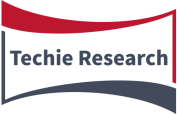In a digital landscape dominated by real-time data, businesses are under growing pressure to make accurate, informed decisions. Market research plays a crucial role in understanding customer behavior, identifying competitive trends, and adapting product strategies to meet shifting demand. However, as more data becomes available online, accessing it consistently and without restrictions is becoming increasingly complex. Websites often implement regional limitations, bot-detection systems, and IP-based access controls that hinder effective research. To overcome these barriers, companies are turning to residential proxies as a vital component of their data infrastructure.
Why Residential Proxies Matter in Market Intelligence
Residential proxies use real IP addresses assigned by internet service providers, allowing users to appear as ordinary visitors from specific geographic locations. This makes them more trustworthy in the eyes of websites compared to datacenter proxies, which are more easily identified and blocked. For market researchers, this trust factor translates into more accurate data collection, especially when scraping product listings, customer reviews, or advertising content tailored by region.
In industries like retail, travel, or digital advertising, pricing and content often vary depending on the user’s location. Accessing localized versions of websites without a residential proxy can result in skewed or incomplete datasets, leading to inaccurate conclusions and flawed strategic decisions.
Read: How Enterprise App Development Enhances Efficiency and Productivity
Avoiding Detection and Access Limitations
Websites are increasingly sophisticated in identifying automated behavior. Tools used in market research—such as bots and crawlers—can be blocked if they generate too many requests from the same IP or if that IP has a known datacenter origin. Residential proxies solve this by rotating clean, real-user IPs, distributing requests across multiple sessions to mimic organic user behavior.
This significantly reduces the chance of being detected or blocked, especially during high-volume scraping tasks or when accessing platforms with strict anti-bot measures, such as social networks, eCommerce sites, or booking portals.
Choosing the Right Proxy Infrastructure
When selecting a proxy solution for market research, it’s essential to evaluate the size and quality of the IP pool, location diversity, rotation logic, and overall uptime. A well-maintained residential proxy network ensures stable connections, high success rates, and minimal risk of being blacklisted.
One such resource for acquiring reliable residential proxy solutions is https://proxy-seller.com/residential-proxies/. The service provides scalable access to global IP addresses with features designed to support data collection, competitive monitoring, and localized testing.
Conclusion
As businesses strive to stay competitive through data-driven insights, the ability to access accurate, unrestricted information becomes a top priority. Residential proxies provide the flexibility, anonymity, and reach necessary to carry out effective market research. Investing in a robust proxy infrastructure is not just a technical upgrade—it’s a strategic move to enhance the quality and reliability of data at the core of modern decision-making.




